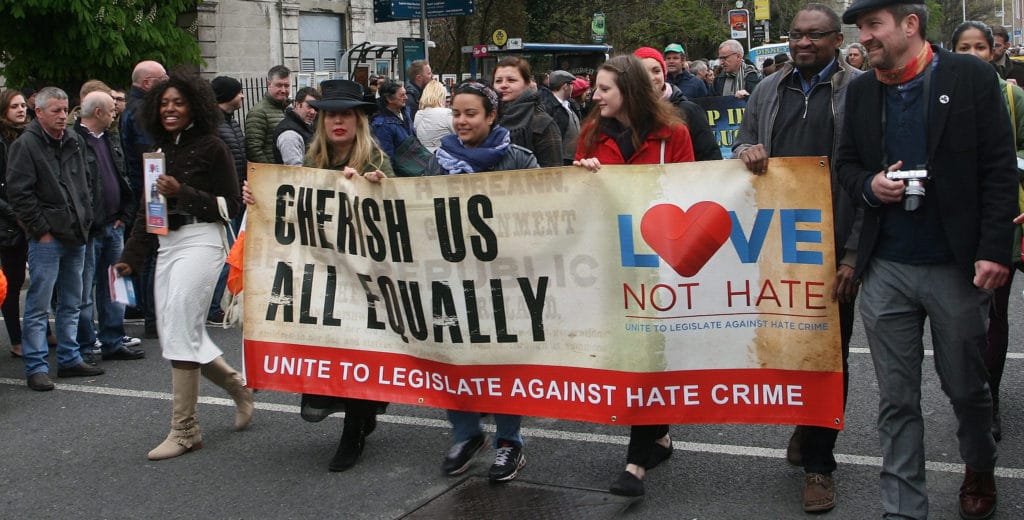Indian Americans are more likely than people of Chinese origin in the United States to report discrimination at the hands of the law enforcement agencies, according to a new survey. At least a quarter of Asian Americans surveyed also said that they experienced discrimination while seeking employment or housing.
As many as 17 per cent Indian Americans, as compared to 2 per cent Chinese Americans, said they or a family member were unfairly stopped or treated by the police because they were Asian, the results of the survey released this week showed. The report, titled “Discrimination in America,” is based on a survey conducted for National Public Radio, the Robert Wood Johnson Foundation, and Harvard T.H. Chan School of Public Health.
The survey showed that a quarter or more Asian Americans have been victims of institutional discrimination because of their ethnicity in job applications (27 per cent), equal pay and job promotions (21 per cent), and when trying to buy or rent housing (17 per cent). More than one in 10 Asian Americans report unfair treatment of them or family members at the hands of the police.
A recent @HarvardORP poll found that a third of African Americans don’t feel comfortable calling the police when they’re in need. @elizabhinton of @Harvard explains how some police departments are working to change this. (via @ForumHSPH) pic.twitter.com/lWZETkfaiD
— HarvardPublicHealth (@HarvardChanSPH) December 6, 2017
The report also showed that 90 per cent of Indian Americans, or Asian Americans of Indian heritage, say they have applied for college or attended college for any amount of time, compared to those of Chinese (60 per cent) or Southeast Asian (63 per cent) heritage. They (33 per cent) are also more likely than both Chinese Americans (16 per cent) and Southeast Asian Americans (11 per cent) to say they live in a predominantly upper income area.
“Our poll shows that Asian American families have the highest average income among the groups we’ve surveyed, and yet the poll still finds that Asian Americans experience persistent discrimination in housing, jobs, and at college,” survey co-director Robert Blendon, the Richard L. Menschel Professor of Health Policy and Political Analysis at Harvard T.H. Chan School of Public Health, said in a statement released on Dec. 4. “Over the course of our series, we are seeing again and again that income is not a shield from discrimination,” he added.
While 35 per cent of Asian Americans said they have experienced people making insensitive or offensive comments or negative assumptions about their race or ethnicity, 32 per cent reported having slurs directed at them because of their race or ethnicity.
Over 60 per cent of Asian Americans believe discrimination against them exists in the United States today. Of this, 68 per cent say discrimination based on individual prejudice is a bigger problem than that in laws and government policies, as compared to 14 per cent saying that government policies are the bigger problem, while 16 per cent referred to both being equally problematic.
Non-immigrant Asian Americans are more likely than immigrant Asian Americans to say that they have frequently faced anti-Asian discrimination when seeking healthcare, and to negatively evaluate the quality of available housing in their local area. Non-immigrant Asian Americans are four times more likely than immigrant Asian Americans to report that they or a family member have experienced sexual harassment because they are Asian, three times as likely to say they have experienced violence because they are Asian, and more than twice as likely to say they have been threatened or non-sexually harassed because they are Asian, as per the report.
The survey also showed that Indian Americans are more likely to identify as Democrats (46 per cent) than Chinese Americans who are likely to identify themselves as Independent (51 per cent). Southeast Asian Americans are evenly divided in their political leanings as Democrats (26 per cent), Independents (28 per cent), and Republicans (27 per cent).
See the entire @NPR @RWJF polling series on #Discrimination in America at our website. Polling toplines, NPR coverage, and all reports on Black, Latino, white, Native, Asian, LGBTQ, & gender discrimination available here upon release: https://t.co/DQIwsXxTBq pic.twitter.com/epYKaNOBBc
— HarvardOpinionRP (@HarvardORP) November 16, 2017
